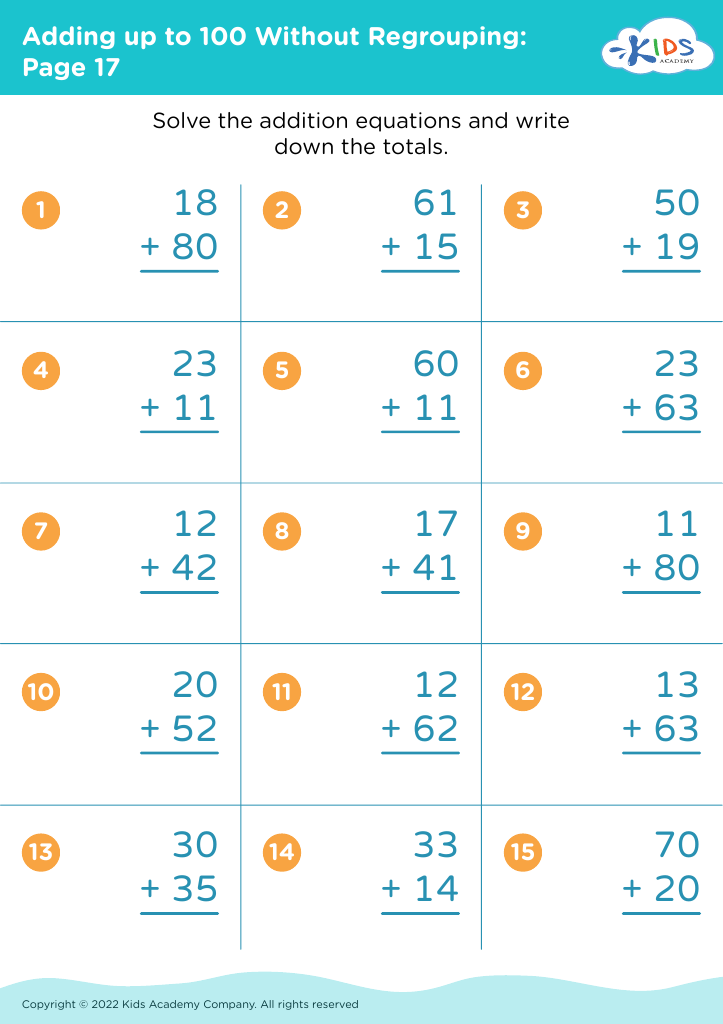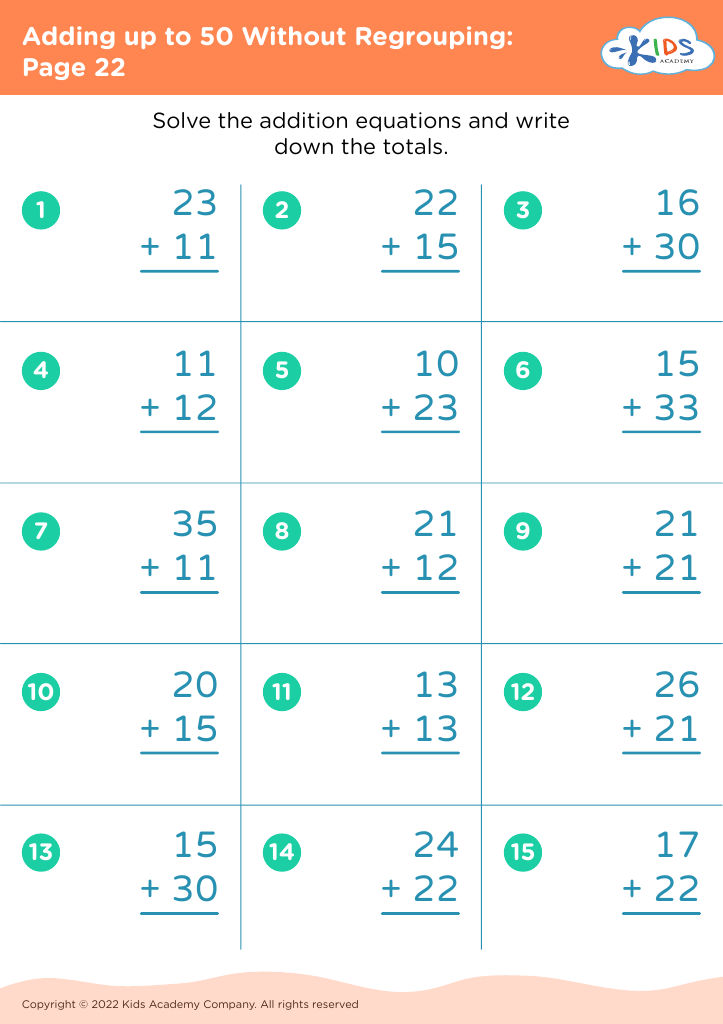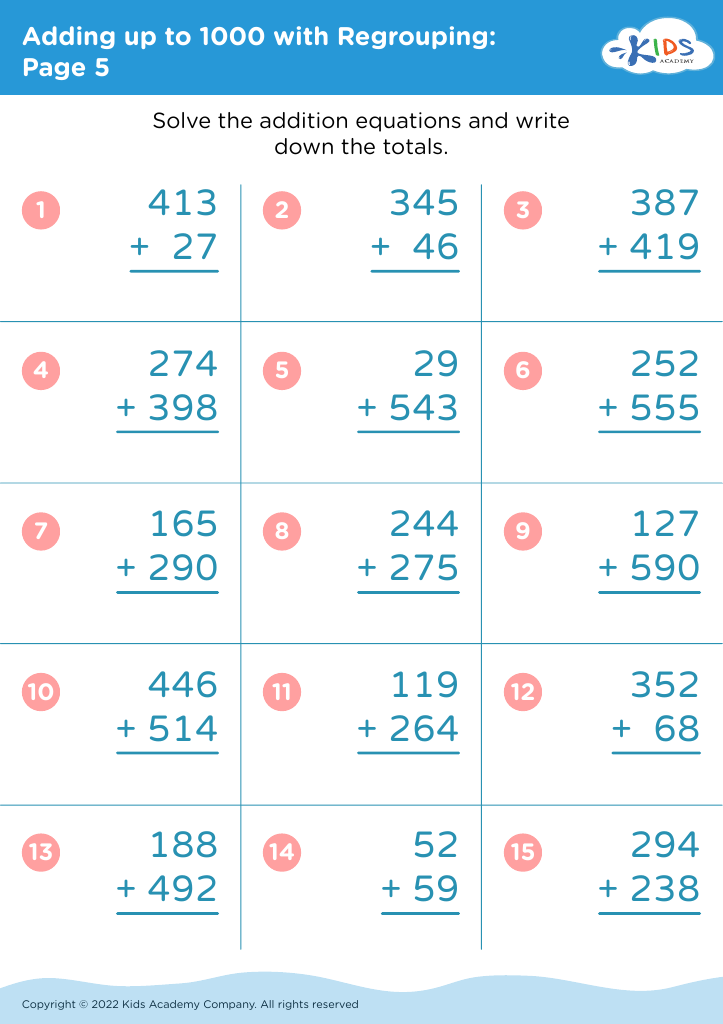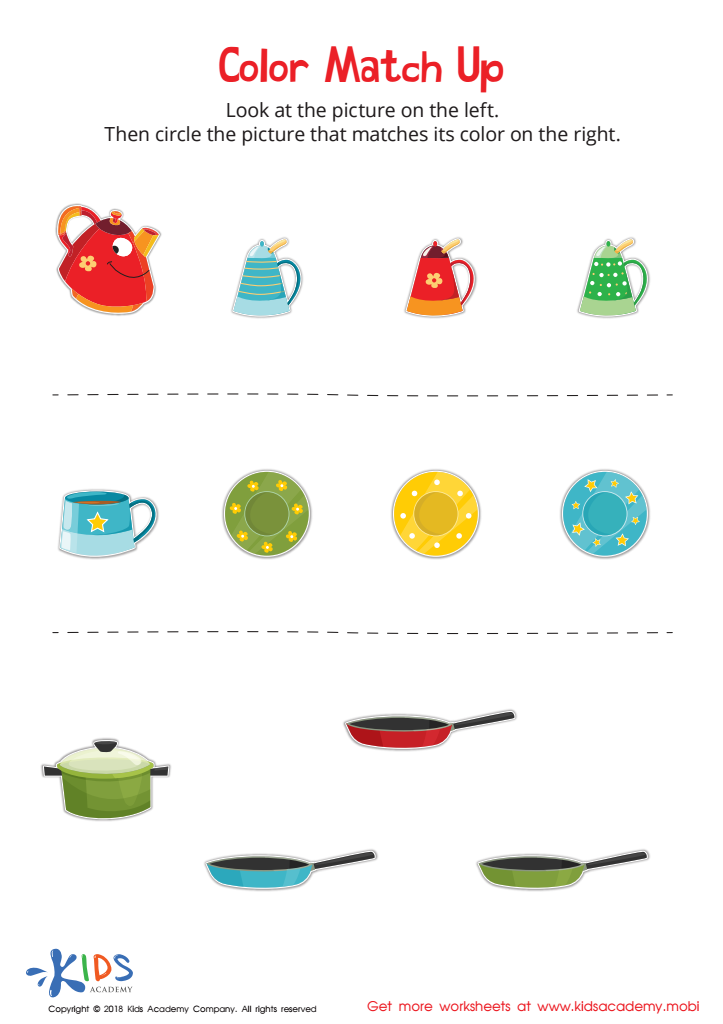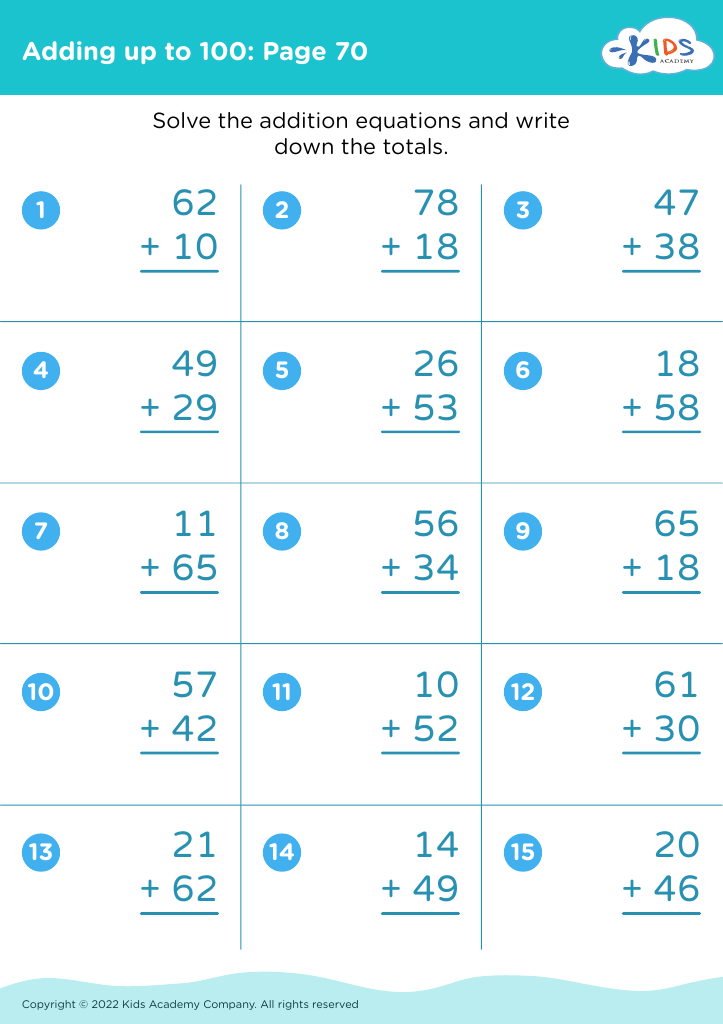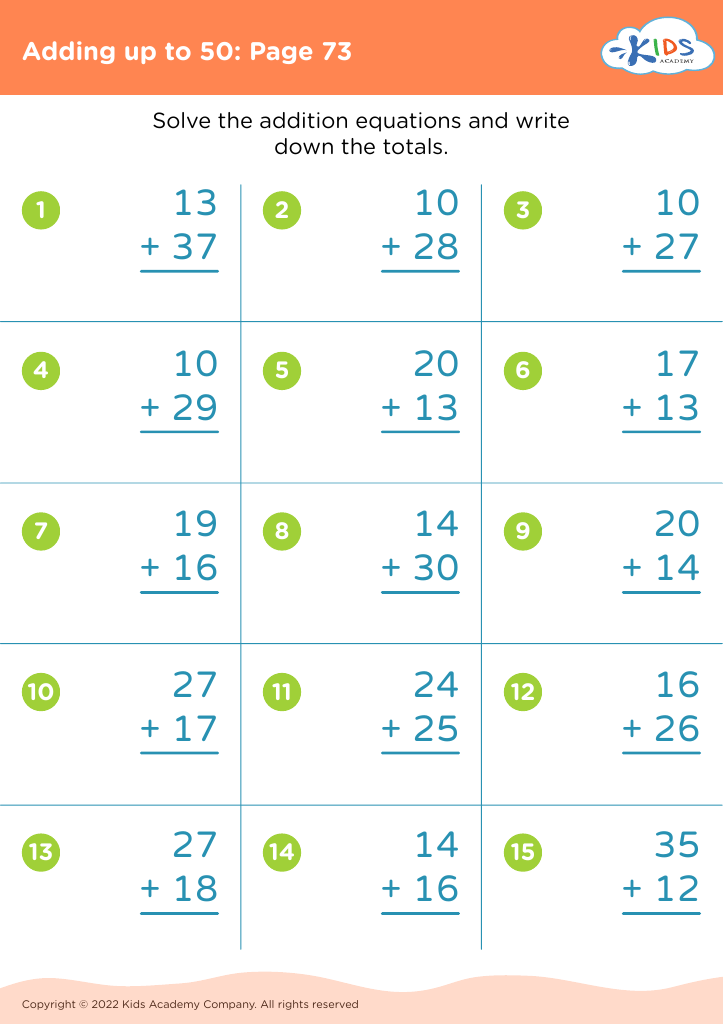Color recognition Math Worksheets for Ages 6-7
33 filtered results
-
From - To
Discover our engaging Color Recognition Math Worksheets for ages 6-7, designed to blend fundamental math skills with engaging color activities. Perfect for young learners, these printable worksheets enhance cognitive development, fine motor skills, and spatial awareness through interactive exercises. Stimulating and fun, each worksheet allows children to practice counting, addition, subtraction, and pattern recognition while exploring vibrant colors. Boost your child's confidence and mastery in mathematics with a creative approach that makes learning enjoyable. Visit us at Kids Academy to access the full range of worksheets and watch your child thrive academically.
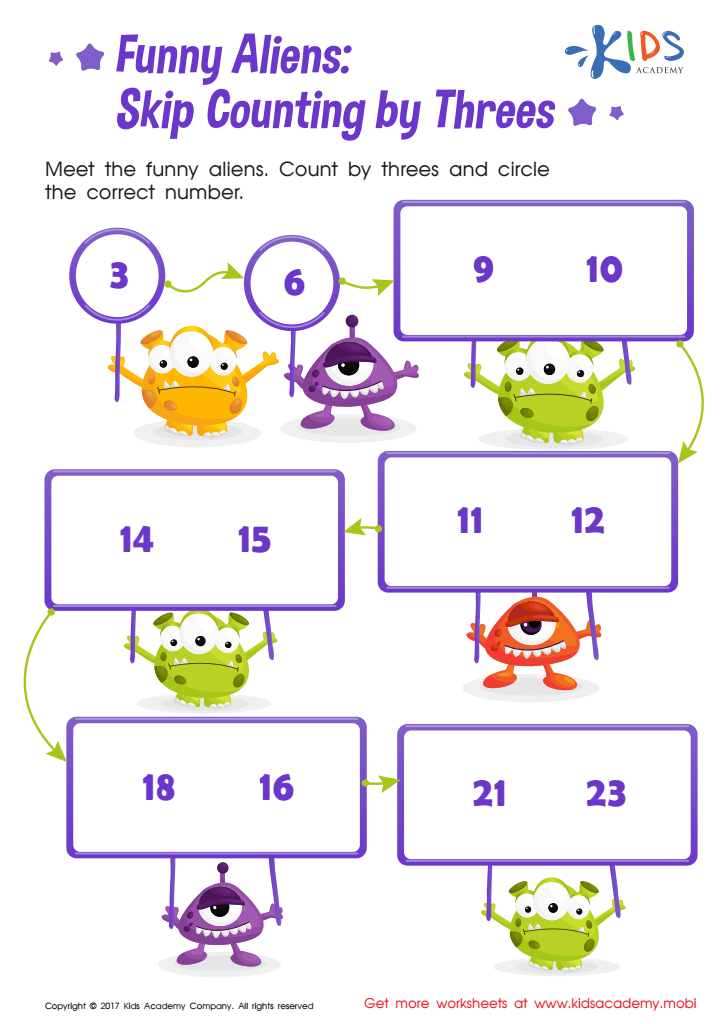

Skip Counting by 3s: Funny Aliens Printable
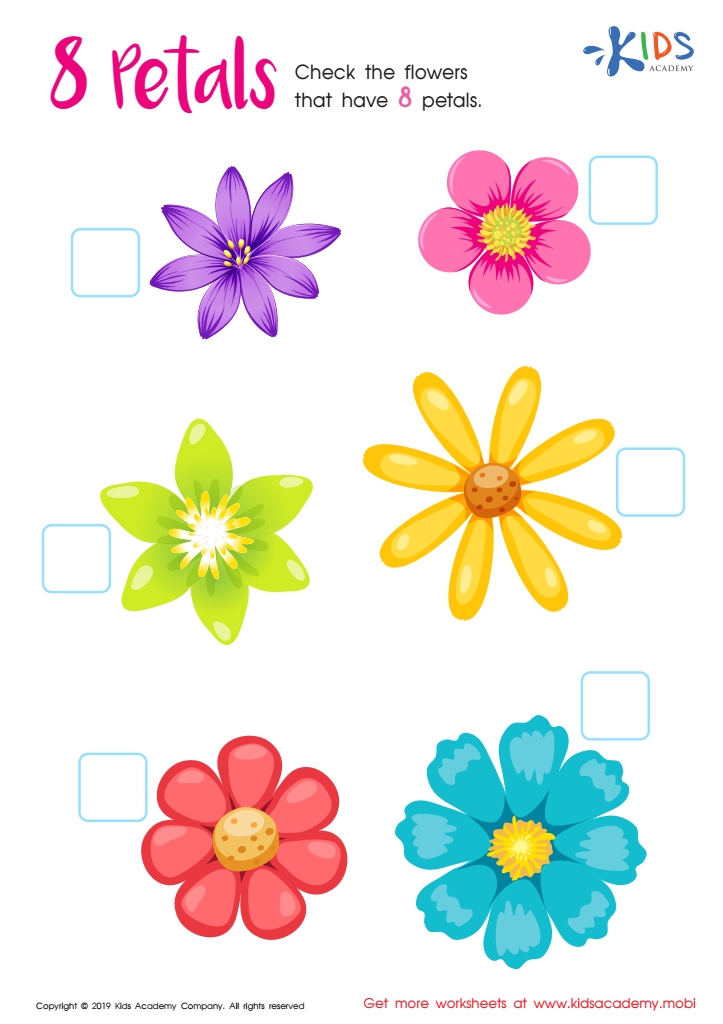

8 Petals Worksheet
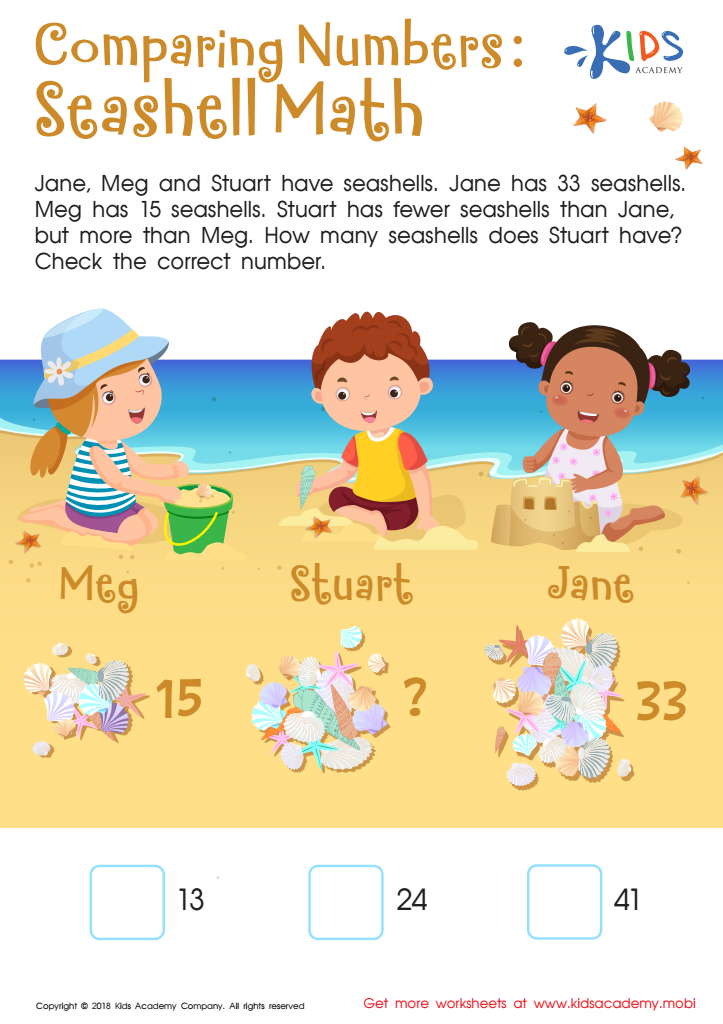

Seashell Collectors Worksheet
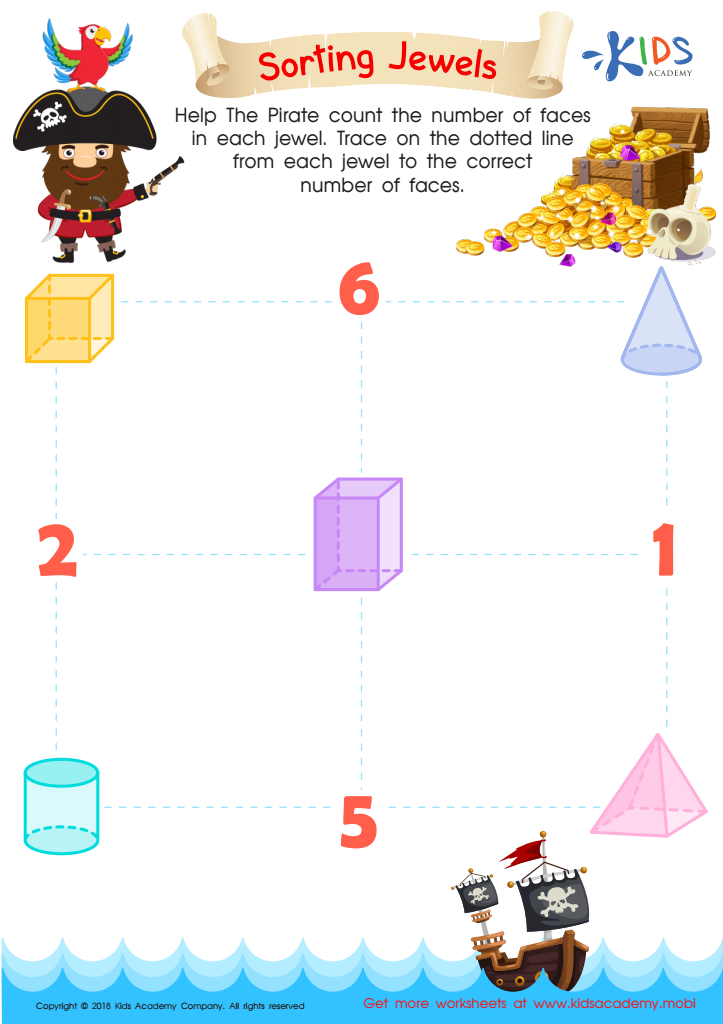

Sorting Jewels Worksheet
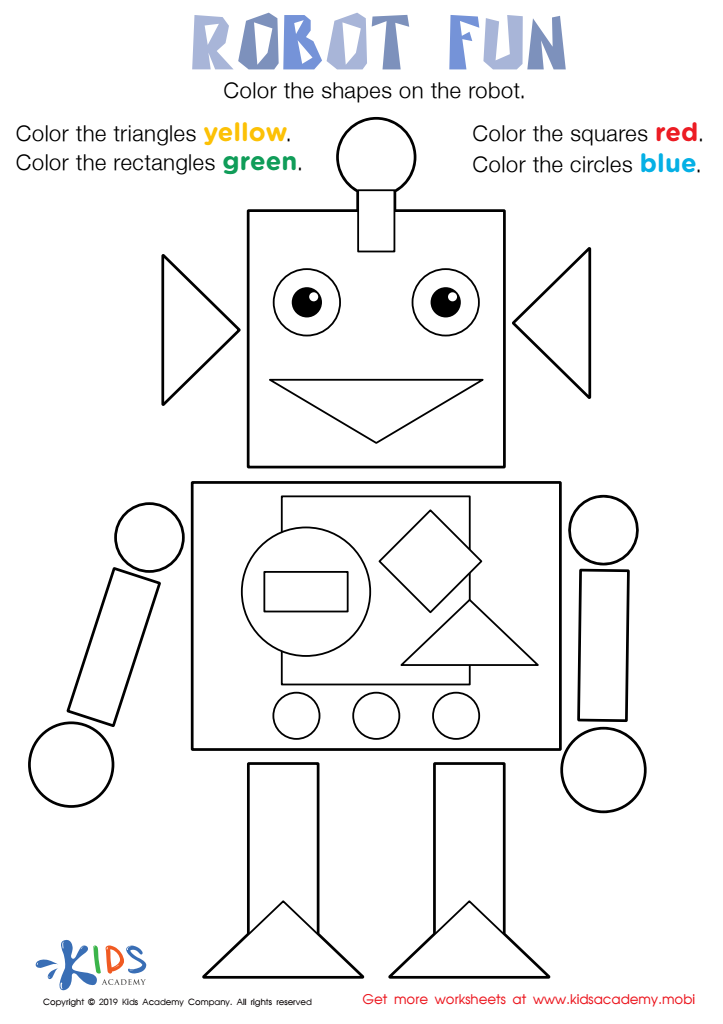

Robot Fun Worksheet
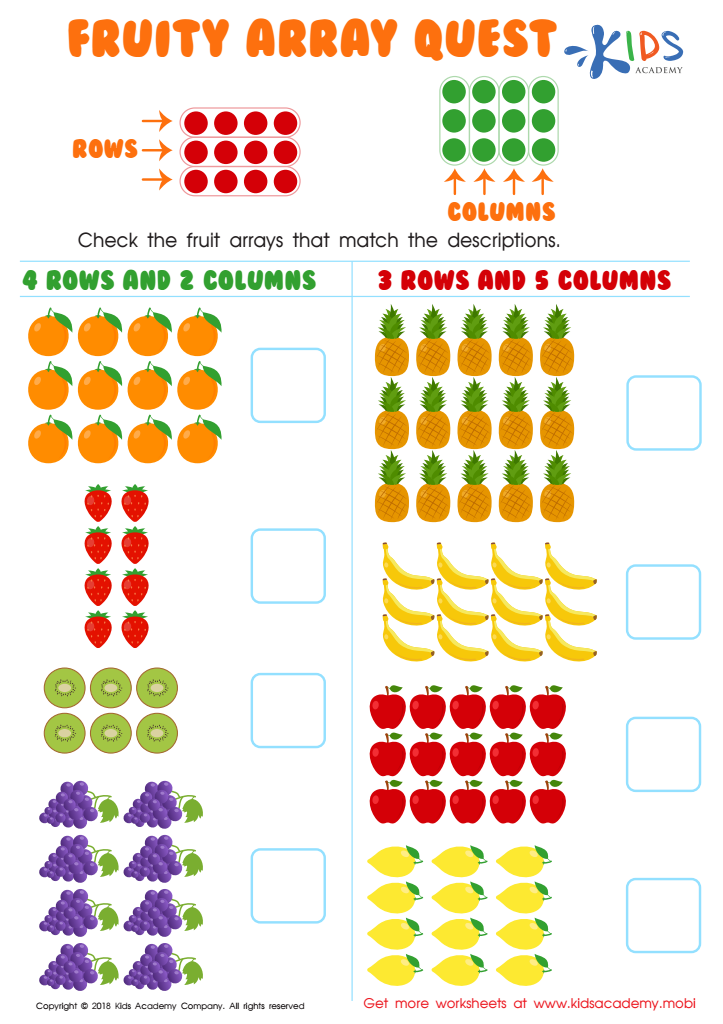

Fruity Array Quest Worksheet
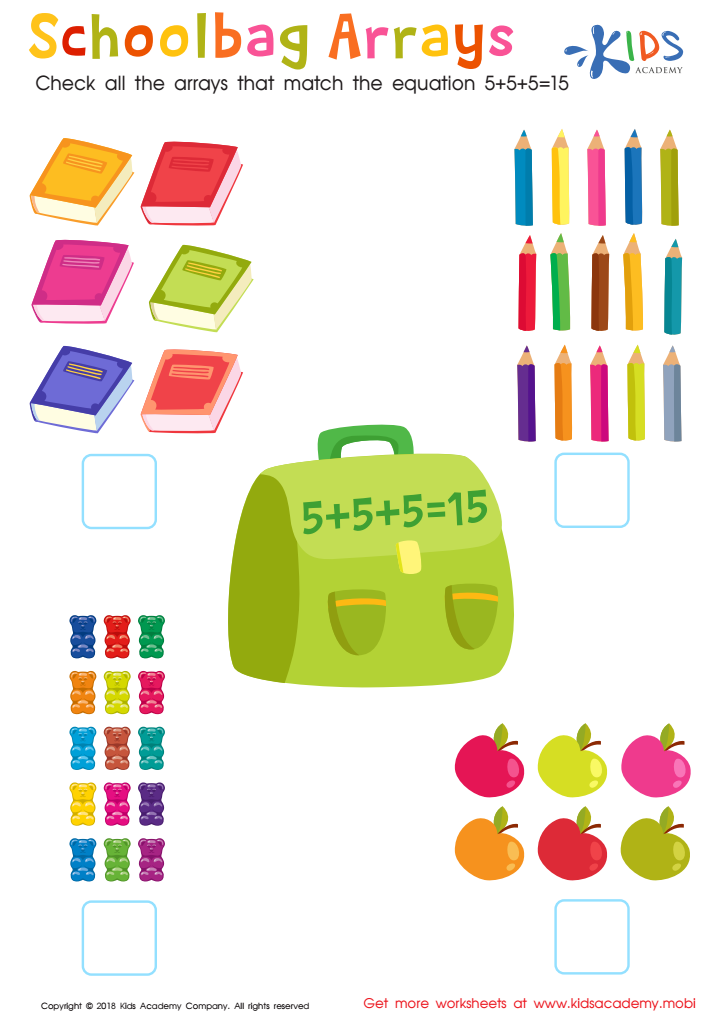

Schoolbag Arrays Worksheet


Party Arrays Worksheet
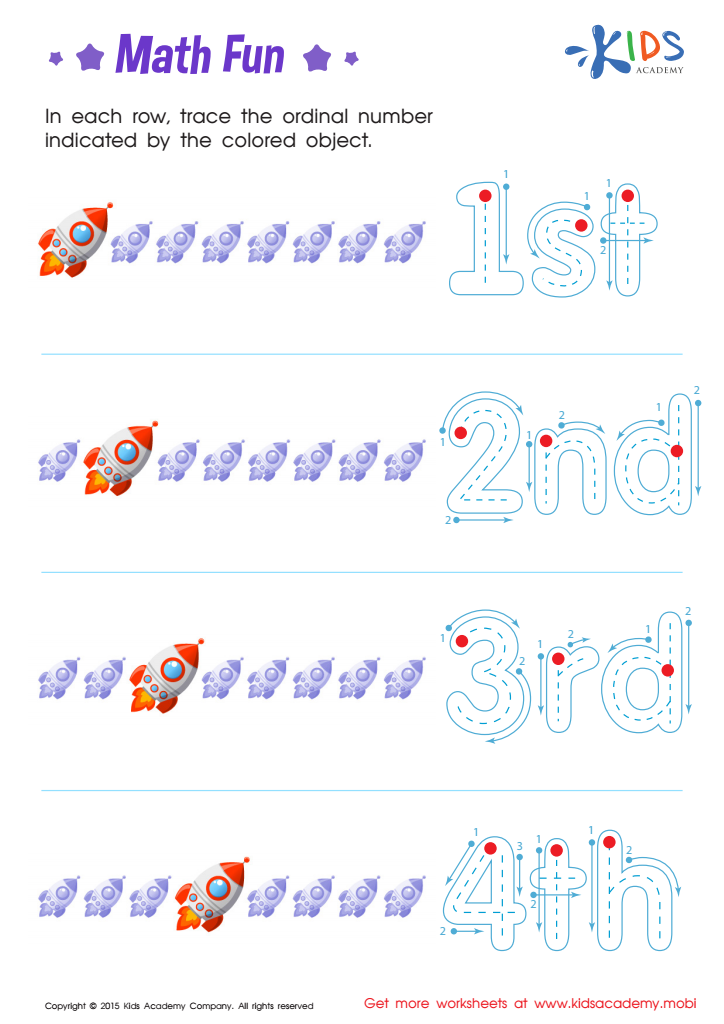

Ordinal Numbers: Math Fun Worksheet
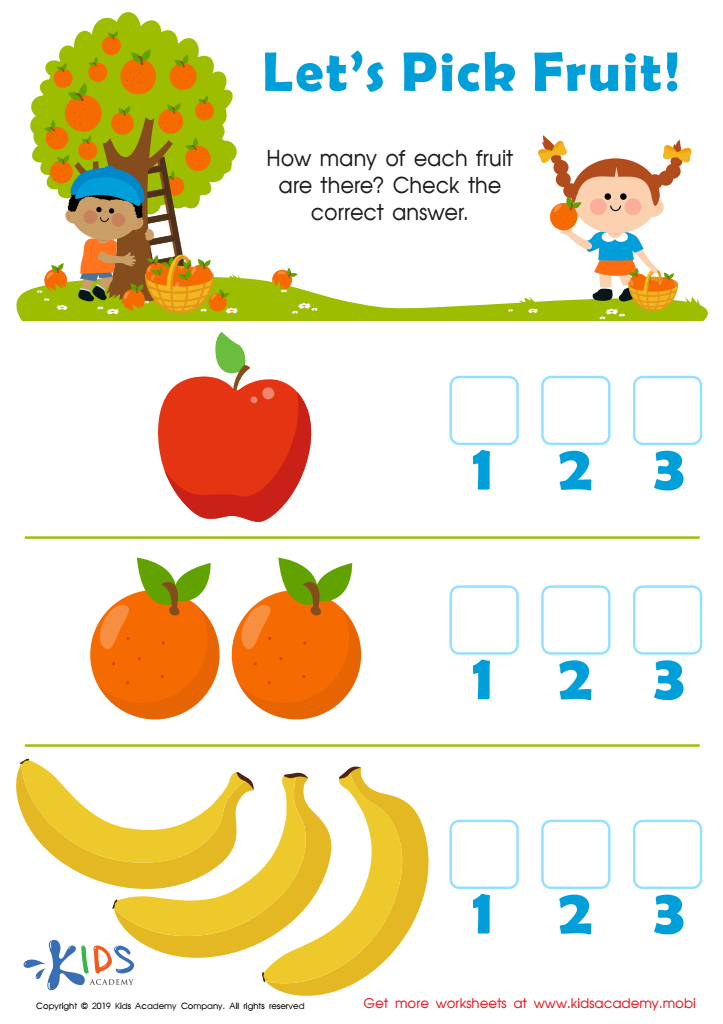

Let's Pick Fruit Worksheet
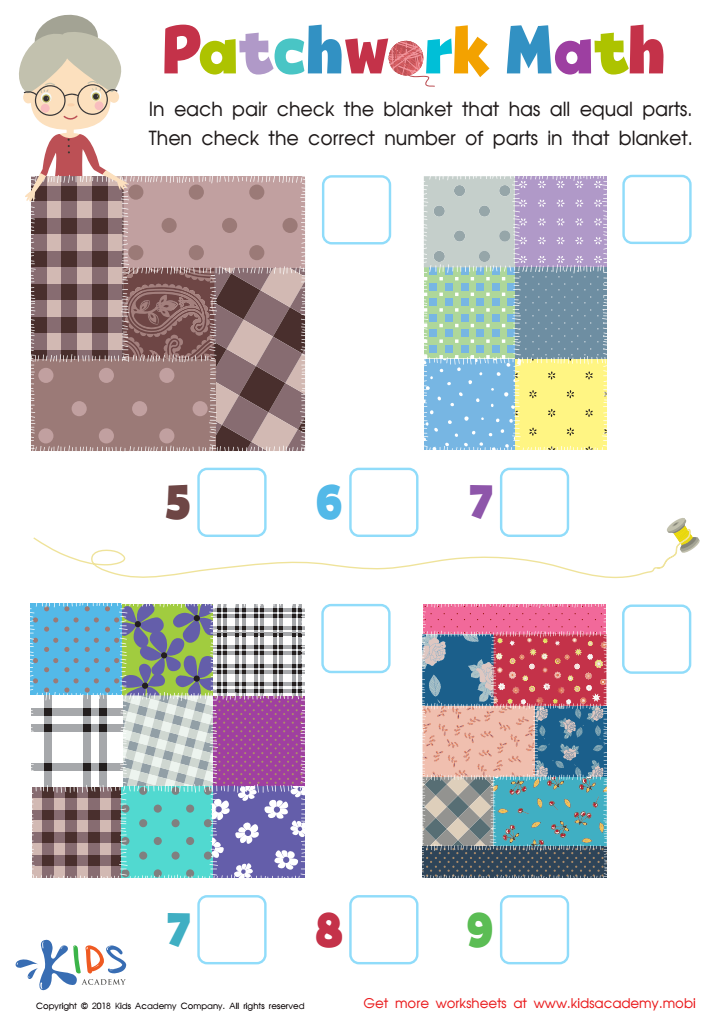

Patchwork Math Worksheet
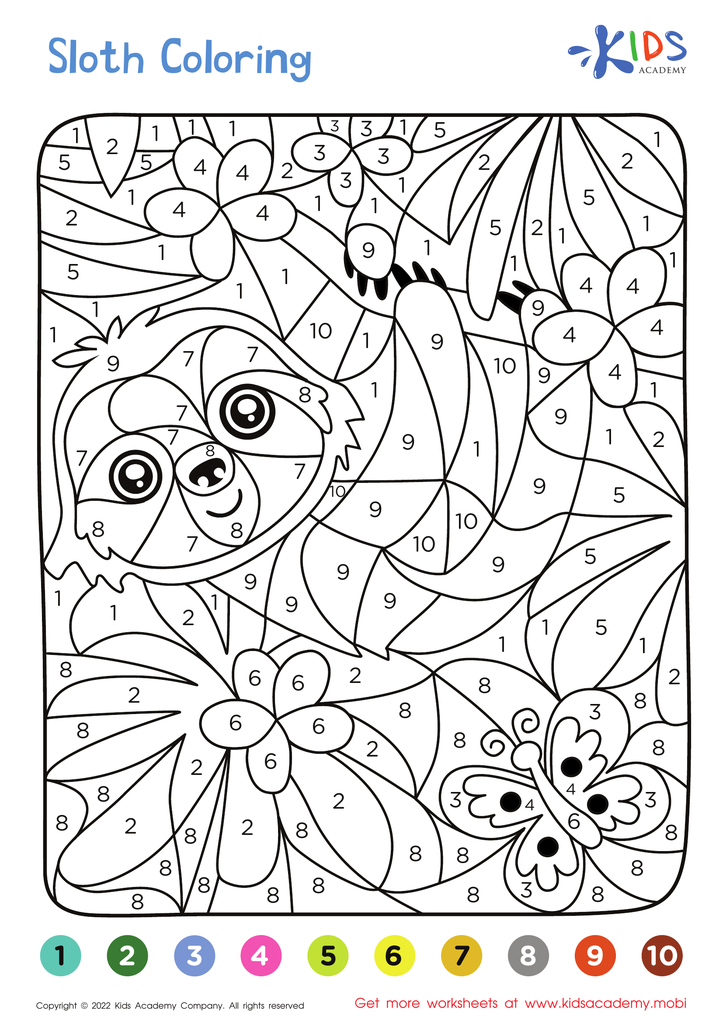

Sloth – Coloring by Numbers
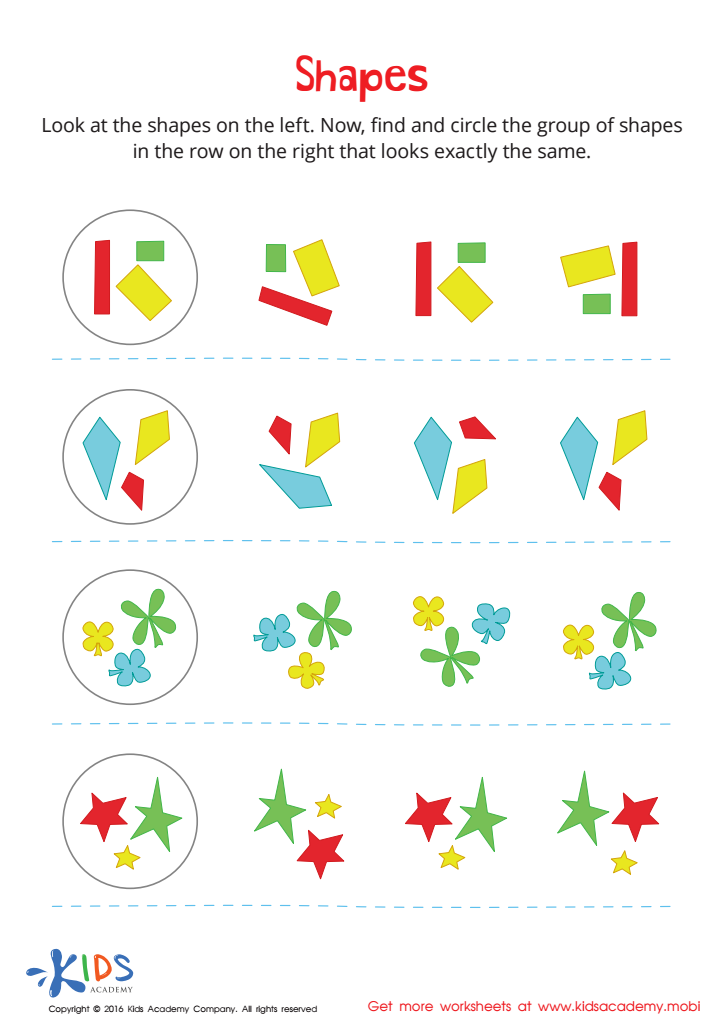

Shapes Worksheet
Color recognition and math may seem distinct, but they are intricately connected in early childhood development, especially for ages 6-7. Mastering color recognition in tandem with mathematical concepts provides numerous cognitive and educational benefits, making it essential for both parents and teachers to prioritize.
First, color recognition enhances a child’s ability to categorize and organize information, key skills in understanding mathematical concepts. By classifying objects by color, children learn to identify patterns and sequences, foundational for principles like sorting, ordering, and establishing relationships between numbers.
Second, integrating colors with math activities cultivates visual learning and memory. Using vibrant manipulatives and color-coded representations can make abstract mathematical concepts more concrete and relatable, improving comprehension and retention. For example, using red blocks for units and blue blocks for tens in place value exercises helps children visualize and grasp otherwise difficult concepts.
Third, engaging with colors can significantly boost a child’s motivation and interest. Learning through playful, colorful activities makes math more enjoyable and less intimidating, fostering a positive attitude towards the subject.
Ultimately, parents and teachers who incorporate color recognition in math not only build a strong foundation for mathematical thinking but also stimulate overall cognitive development, fostering creativity and critical thinking skills in young learners.
 Assign to My Students
Assign to My Students

